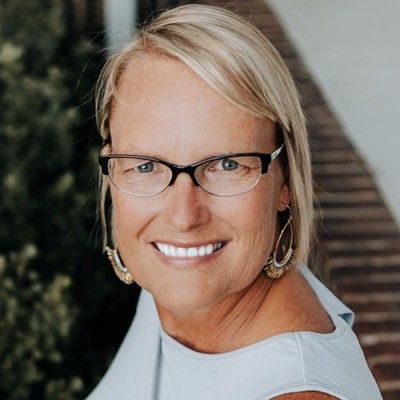Broken arm, scratch on the face, a black and blue mark. Ouch. But what about the things people can’t see? Mental health is becoming increasingly normalized in society.
Nearly one in five adults in the United States struggle with a form of mental illness according to a National Institute of Mental Health study in 2019. Illnesses like depression, anxiety, PTSD, etc. have always been present, but the reaction in both healthcare and corporate environments has drastically shifted over the years. Schools are taking a more holistic approach to mental health, companies are offering mental health benefits, and celebrities are openly speaking out about experiences in therapy. So who is helping the dental community?

Hygienist Susan Jeffries created the Dental Mental Network- Incisal-Edge
Hygienist Sue Jeffries was having a particularly difficult day. On the anniversary of her mother’s death, she found herself crying uncontrollably. Being in the digital age, Jeffries went live on Facebook putting her vulnerabilities on full display.
“Hundreds of people reached out to thank me for sharing,” Jeffries said. The Dental Mental Network was born in November 2019. Personally affected by PTSD and PTSD-related bipolar disorder, Jeffries recognized a dental-specific need. The North Carolina non-profit works to educate dental professionals on mental health awareness and connect those who reach out with mental health professionals.
Many dentists like other medical professionals have a patient-first mentality and often forget to care for themselves.
“We are unable to help others until we help ourselves first. It’s difficult to leave the baggage at the door before work to be present for staff and patients.” – Dental Mental Network Non-Profit Founder Sue Jeffries
Since launching the Dental Mental Network, Jeffries feels that the stigma is melting away from the dental community. The fear of being ostracized by colleagues is no longer a concern for many dentists stepping forward.
For dentists with packed schedules, taking time for themselves may seem nearly impossible.
“All you need is thirty minutes each day,” Jeffries said. “Sit quietly with yourself, yoga, meditation. Focus on how you feel today with a daily check-in to identify trends within your body and mind.”
This is what Jeffries first prescribes when a dental professional comes to the Dental Mental Network volunteers for help. The volunteer network consists of mentors, life coaches, and those in the health and wellness fields. According to Jeffries, the Dental Mental Network volunteers are “anyone with a heart who’s ready to give back to dentistry in a really big way.”
Recognizing that some dentists may not feel comfortable reaching out, the Dental Mental Network is beginning a series of free weekly webinars on a range of topics.
“At the same time, the same night each week, viewers can listen to programs on mental wellness, occupational wellness, and social wellness,” Jeffries said. “We recognize that society plays a huge role in mental health stigma. We want to help combat and change the conversation.”
The Dental Mental Network is planning its first in-person, hybrid event in North Carolina for the fall. But for now, they need volunteers. Whether you’re a writer looking to blog, a survivor of sexual assault, or a member of the health and wellness communities, the Dental Mental Network needs you, the dental industry needs you.
“The more people we have volunteering, the more diversity we have,” Jeffries said. “ Everyone can bring something to the table.”
For more information on the Dental Mental Network, volunteering, and their offerings for dentists, visit: https://dentalmentalnetwork.com



